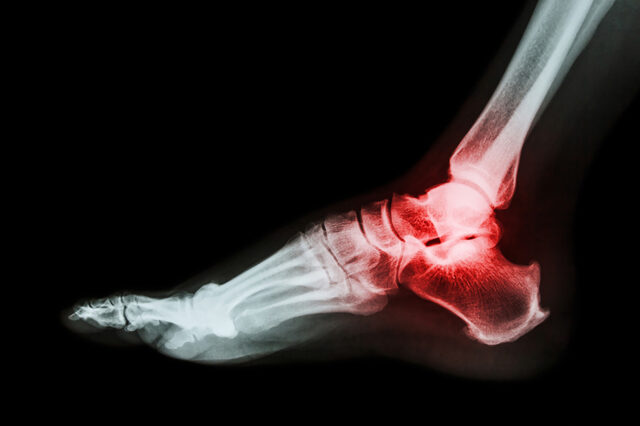
As the quest for alternative and more holistic treatments for various ailments intensifies, the spotlight has turned to the potential benefits of cannabidiol (CBD).
Specifically, its emerging role in the management of arthritis has piqued the curiosity of both the scientific community and the general public.
This exploration takes you on a journey through the heart of this debate, presenting insights, breakthroughs, and considerations about CBD’s potential to revolutionize joint health.
The Role of Inflammation in Arthritis

Arthritis, at its core, is an inflammatory condition. A host of reasons can trigger this inflammation, from genetic factors to environmental triggers. The swelling, redness, and pain experienced by arthritis sufferers emanate from this inflammation. It’s a body’s protective response gone awry.
While inflammation in small bouts aids healing, chronic inflammation becomes destructive, attacking joint tissues and leading to symptoms typical of arthritis.
Over time, this persistent inflammatory response can cause joint damage and lead to debilitating pain, making daily tasks insurmountable. CBD for arthritis is a great remedy that everyone with this issue should try.
Diverse types of arthritis exist, such as rheumatoid arthritis, which is an autoimmune disorder, and osteoarthritis, a wear-and-tear condition. Yet, inflammation remains the common denominator, emphasizing the need for potent anti-inflammatory agents to combat its progression.
Benefits and Mechanisms

Enter CBD, a compound derived from the Cannabis sativa plant. This natural substance has been celebrated for its therapeutic benefits, ranging from stress relief to potential anti-inflammatory properties. Unlike its counterpart, THC, it doesn’t induce euphoria or the “high” often associated with marijuana.
On a molecular level, CBD interacts with the endocannabinoid system (ECS) in our bodies. This system plays a pivotal role in regulating diverse physiological processes, including inflammation. By modulating the ECS, CBD can potentially mitigate inflammatory responses, presenting an intriguing option for arthritis management.
The therapeutic allure of CBD isn’t merely confined to its anti-inflammatory prowess. Its analgesic effects, offering pain relief, have further underscored its potential as a complementary treatment option for arthritis sufferers seeking respite from debilitating pain.
Research and Studies on CBD for Arthritis

Scientific investigations have begun to corroborate anecdotal claims about CBD’s efficacy. A notable study demonstrated that rats with arthritis showed significant reductions in pain and inflammation when treated with CBD. Though animal-based, such findings are promising. Read more about cannabis products for inflammation.
However, human trials, while fewer, have also been encouraging. In one survey, a substantial percentage of participants reported improvements in sleep and pain after using CBD. They described a better quality of life, a crucial metric in gauging the success of arthritis treatments.
While these findings kindle optimism, it’s pivotal to acknowledge the nascent stage of such research. There’s a pressing need for more robust, large-scale studies to paint a clearer picture of CBD’s role in arthritis management. Only then can we make definitive claims about its efficacy.
Choosing the Right Products

With the surging popularity of CBD, the market has witnessed an inundation of products. From tinctures to balms, the options are vast, making selection daunting. It’s crucial to choose products with a Certificate of Analysis (COA) from third-party labs, ensuring transparency about ingredients and potency.
Opt for products that explicitly mention the CBD content, and be wary of those making extravagant claims. It’s always prudent to gravitate towards brands with a commendable reputation, backed by credible testimonials and reviews.
The source of CBD is another consideration. Products derived from organically grown hemp, free from pesticides and heavy metals, tend to be of superior quality. Your choice, thus, should be both informed and discerning to ensure safety and efficacy.
Dosage and Administration Guidelines
Establishing the optimal CBD dose can be akin to treading uncharted waters. Factors like individual weight, metabolism, and the severity of symptoms play into what constitutes the “right” dose. Starting low and gradually titrating up until relief is achieved remains a widely endorsed approach.
Topical applications, like creams and balms, offer localized relief, proving beneficial for joint-related discomfort. Conversely, tinctures and edibles exert more systemic effects. Keeping a diary to track dosage and symptom relief can provide valuable insights, aiding dose refinement.
While self-experimentation might seem daunting, consulting a healthcare provider familiar with CBD can offer guidance. They can assist in tailoring doses, ensuring that they complement existing medications and overall health strategies.
Traditional Arthritis Treatments

CBD isn’t poised to replace traditional arthritis treatments, but rather augment them. Non-steroidal anti-inflammatory drugs (NSAIDs) and disease-modifying antirheumatic drugs (DMARDs) remain mainstays in arthritis management. The question then arises: Can CBD integrate harmoniously with these treatments?
There’s budding evidence that CBD might reduce the need for higher NSAID doses, minimizing potential side effects. CBD’s potential liver interactions, however, necessitate caution when combined with certain medications.
The overarching principle is collaboration. Arthritis sufferers should foster open dialogues with their healthcare providers, ensuring that CBD’s introduction into their regimen is both safe and beneficial.
Managing Arthritis Symptoms

CBD’s potential in symptom management extends beyond mere pain relief. Many arthritis sufferers grapple with sleep disturbances. Preliminary findings suggest that CBD might aid in enhancing sleep quality, an invaluable benefit for those battling nightly restlessness.
Joint stiffness, another debilitating manifestation of arthritis, has been reported to show improvement with CBD use. This compound’s potential muscle relaxant properties can offer respite from the rigidity that mars daily functioning.
It’s paramount, however, to perceive CBD as a piece of the puzzle rather than the entire solution. It can act as a powerful adjunct, working in tandem with other therapeutic modalities to offer holistic relief.
Potential Risks and Side Effects
No discussion about CBD is complete without addressing potential caveats. Side effects, though generally mild, can include dizziness, dry mouth, and changes in appetite. There’s also the risk of interactions with other medications, underscoring the importance of medical supervision.
Liver health, especially for those on medications metabolized by the liver, needs monitoring when it is introduced. Periodic blood tests can offer insights into liver function, ensuring its well-being.
Despite its natural origin, treating CBD with the same caution as any other medication is prudent. Recognizing its potential side effects and seeking timely intervention if they manifest is crucial.
Final Thoughts
The dance between CBD and arthritis is intricate, filled with potential and caveats alike. As we navigate this evolving landscape, one thing is clear: the promise of a natural compound that could revolutionize joint health is both exciting and compelling.
With continued research and collaboration between patients and healthcare providers, the full potential of CBD in arthritis management might just be realized.









